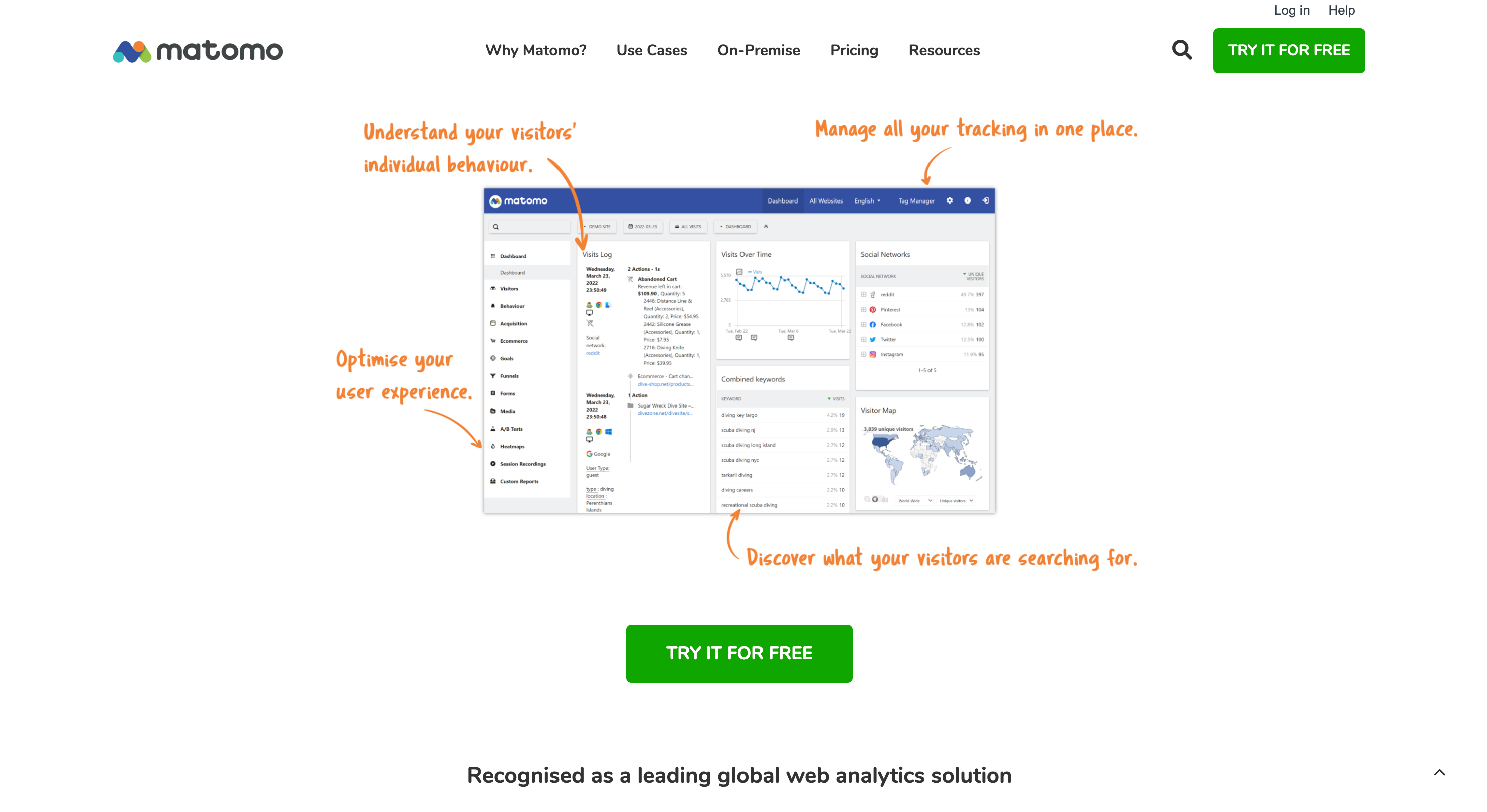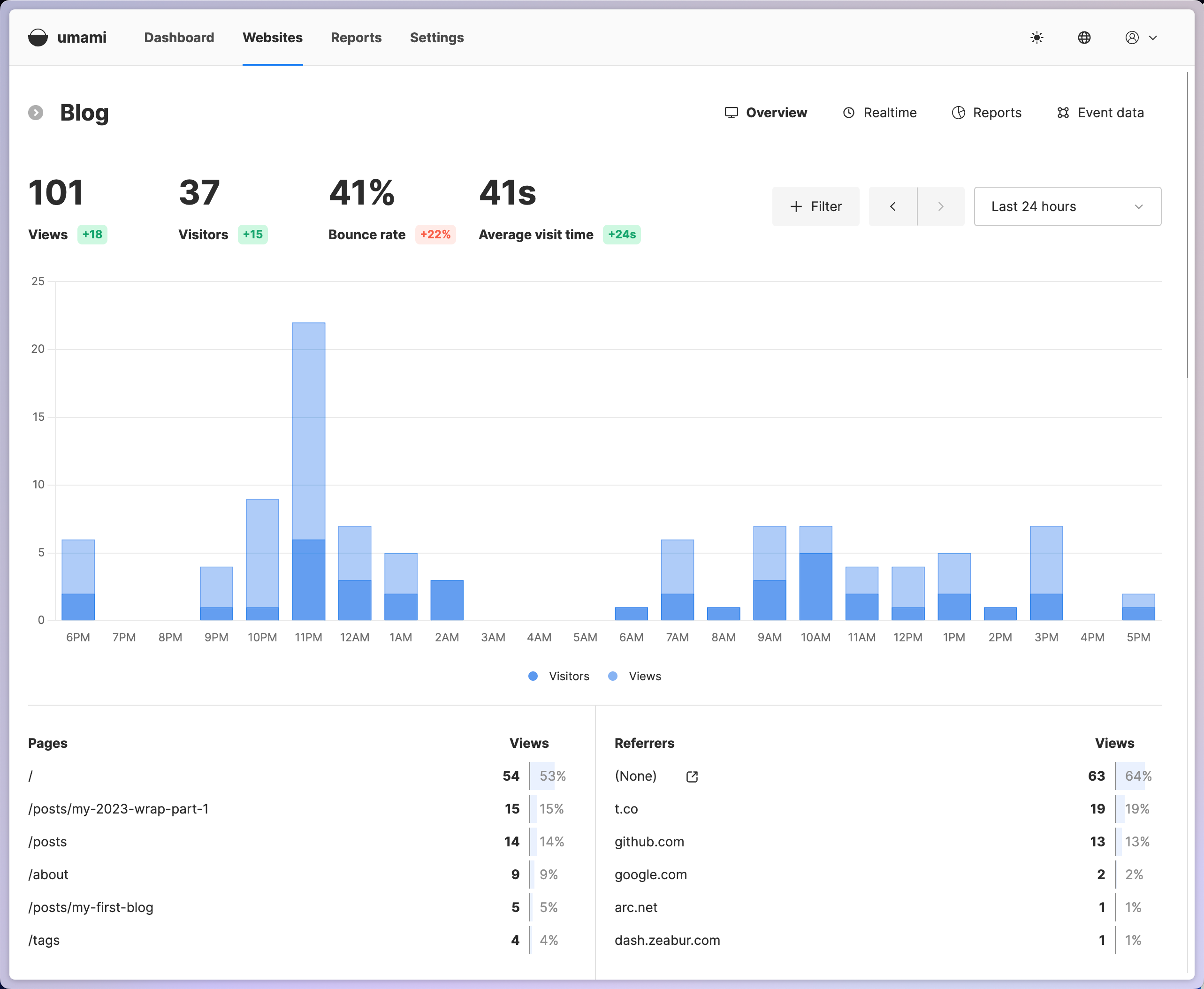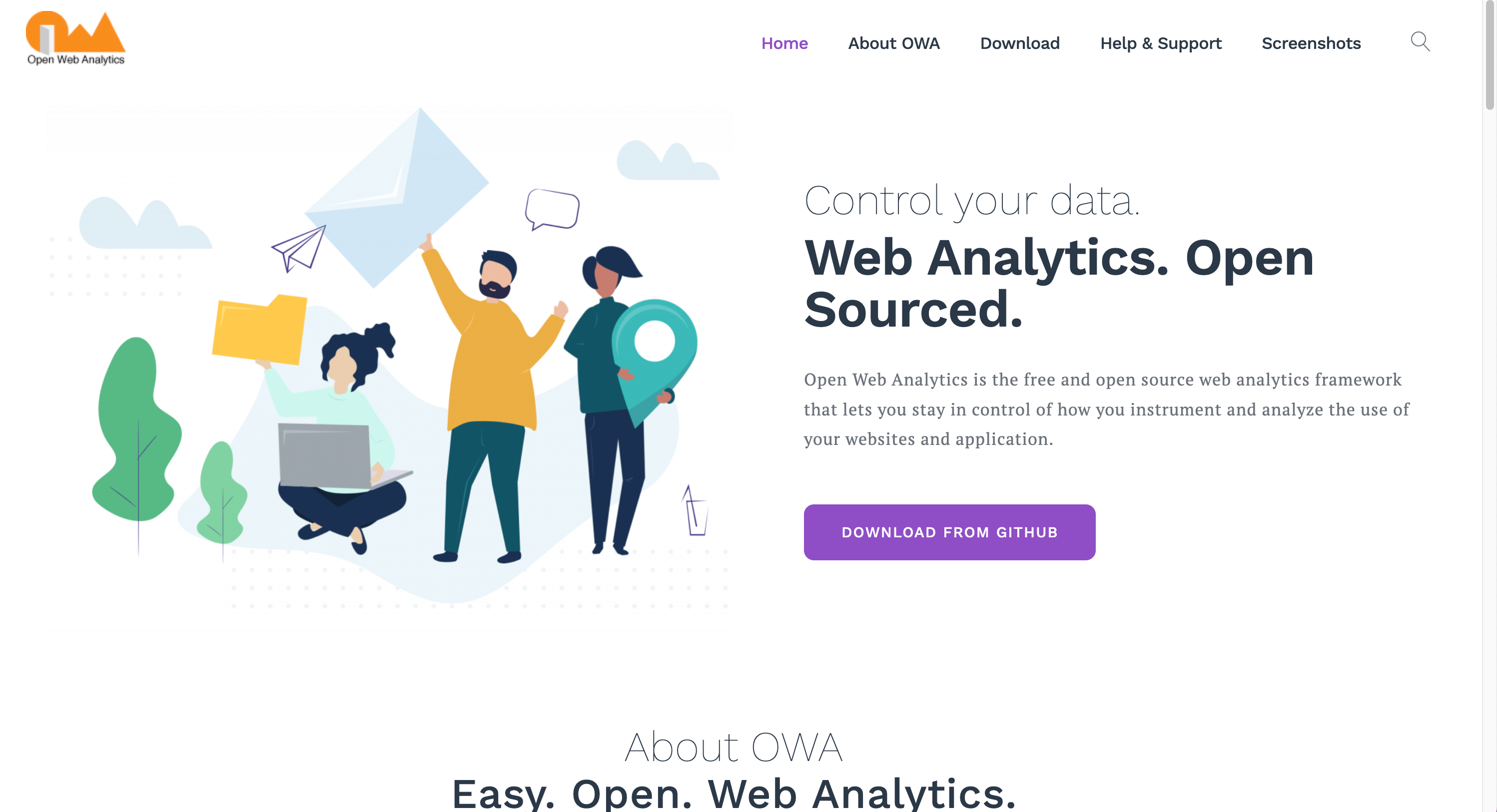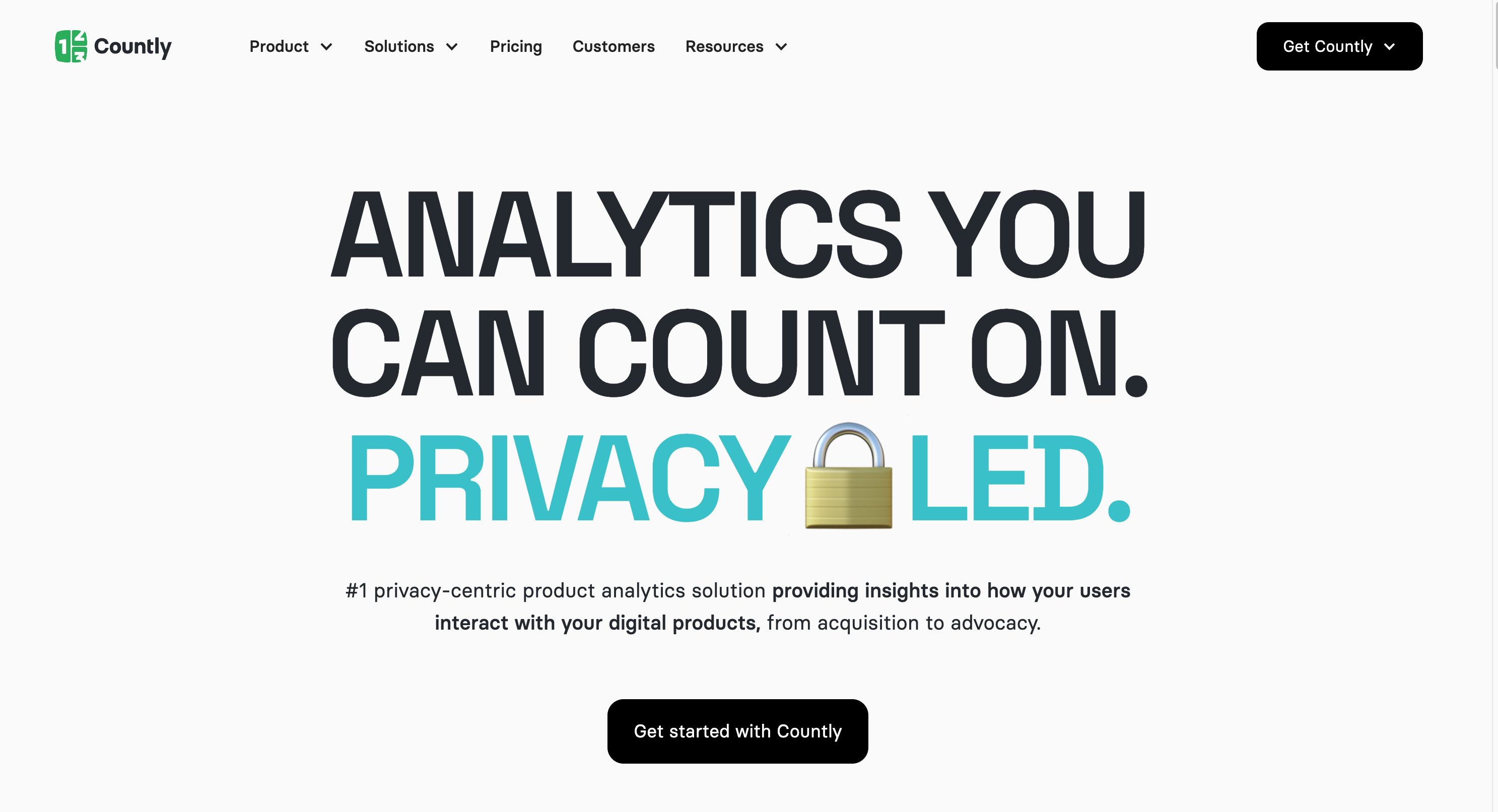Features
Resources
Top 5 Self-Hosted, Open Source Alternatives to Google Analytics
Introduction
Shifting from Google Analytics to open source, self-hosted alternatives can significantly enhance data privacy and customization. This blog post introduces the top five open source analytics tools, offering a comprehensive comparison of their features, benefits, and unique capabilities.
**1. Matomo **
A Comprehensive Analytics Suite
Matomo offers a robust, feature-rich alternative to Google Analytics, with the added benefit of full data ownership and privacy.

Key Features:
-
Real-time data updates.
-
Extensive customization for reports and dashboards.
-
GDPR compliance, ensuring user privacy.
-
A range of plugins for extended functionality.
Use Case Example: A healthcare website uses Matomo to securely track user interactions while maintaining strict compliance with health data privacy regulations.
**2. **Plausible Analytics
Lightweight and Privacy-Focused
Plausible stands out for its simplicity and commitment to user privacy, making it a great choice for small to medium-sized websites.
Key Features:
-
Minimalist, easy-to-navigate dashboard.
-
GDPR, CCPA, and PECR compliant.
-
No cookies, ensuring user privacy.
-
Open source with an option for self-hosting.

Use Case Example: An educational blog opts for Plausible to track user engagement metrics without impacting site performance or user privacy.
**3. **Umami
User-Friendly and Minimalistic
Umami is a straightforward and easy-to-use analytics tool, perfect for those seeking simplicity and ease of use.

Key Features:
-
Simple, clean interface for easy data interpretation.
-
Tracks multiple websites under one account.
-
Real-time website traffic insights.
-
Self-hosted with a focus on user privacy.
Use Case Example: A portfolio website for a freelance designer utilizes Umami to monitor visitor interactions and optimize content accordingly.
4. Open Web Analytics (OWA)
Feature-Rich and Versatile
Open Web Analytics offers a comprehensive set of features, rivaling commercial analytics tools, with the flexibility of open source.

Key Features:
-
Detailed tracking of visitors, including mouse tracking.
-
E-commerce tracking capabilities.
-
Rich set of data reports and visualizations.
-
Integration with popular CMS platforms.
Use Case Example: An e-commerce site uses OWA to analyze customer paths and improve the shopping experience, boosting conversion rates.
**5. **Countly
Extensive Analytics for Web & Mobile
Countly is notable for its ability to analyze both web and mobile app data, providing a unified view of user interactions across platforms.

Key Features:
-
Real-time data processing.
-
Extensive plugin library for custom functionality.
-
Mobile analytics for iOS and Android apps.
-
Strong focus on privacy and data security.
Use Case Example: A mobile app development company uses Countly to track user engagement across their portfolio of apps and websites, streamlining their marketing and development efforts.
Conclusion
Choosing the right open source, self-hosted alternative to Google Analytics depends on your specific needs, whether it's for enhanced privacy, detailed data insights, or ease of use. Each of these tools offers unique strengths, empowering website owners with the flexibility and control needed in today's digital landscape.